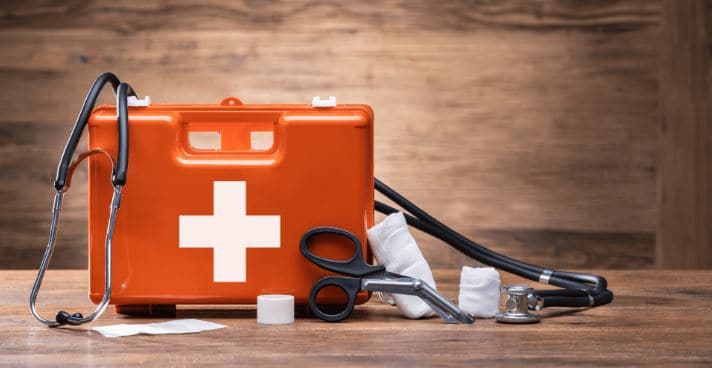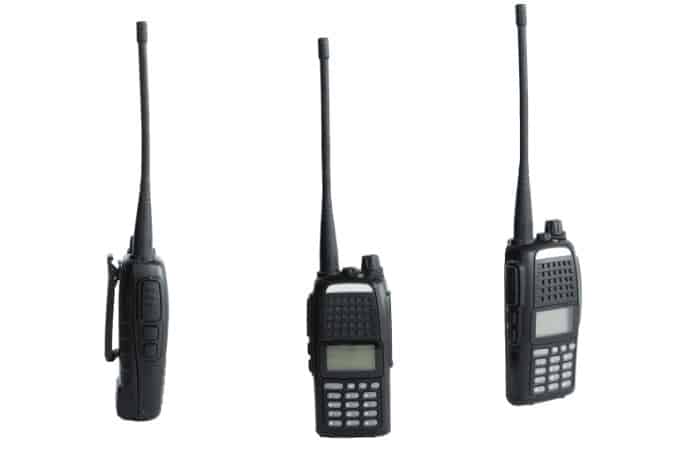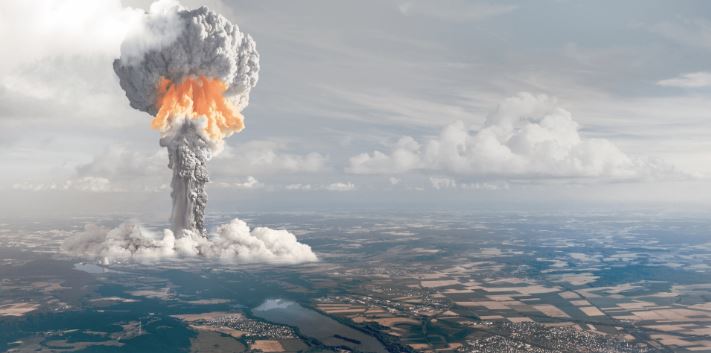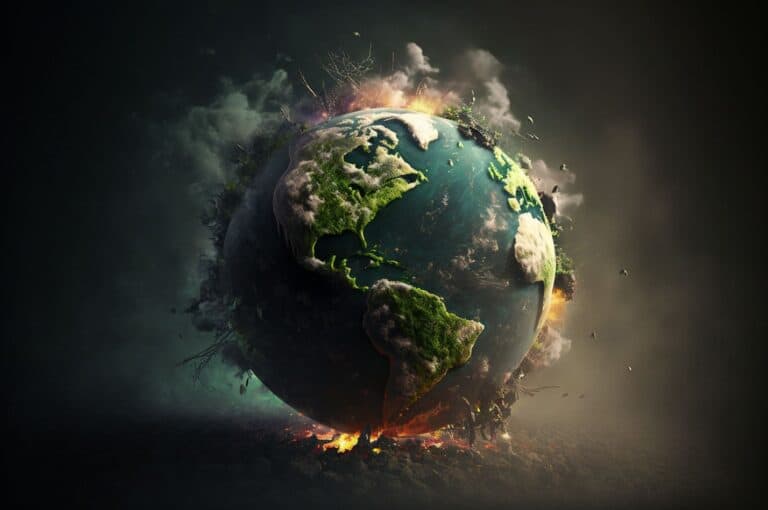How to Prepare for War as a Civilian in 2024

Ever watched the evening news, heard about escalating global tensions, and felt unease about what the future might hold? Ever found yourself thinking that maybe wars aren’t exclusive to other countries? Ever wondered if you should be prepared for war as a civilian?
One thing is for sure: war isn’t just about soldiers on the battlefield and fighter jets in the sky. When we look at recent examples of armed conflict, we see the civilian population facing multiple direct and indirect ripple effects of war, like loss of access to water and basic supplies, power outages, the need to find shelter, and thousands of wounded and killed after air strikes.
Imagine confidently handling those unpredictable times with a sense of preparedness and having a plan in place for you and your loved ones. A comforting thought, right? That level of readiness is definitely achievable, and this guide is here to show you the way.
What is Civilian War Preparedness?
Civilian war preparedness refers to the measures and steps that non-military individuals can take to ensure their safety, security, and well-being during times of conflict or war.
While soldiers are trained for combat scenarios in military bases, civilians often find themselves unprepared for the consequences of warfare. Those who visualize the risk and start preparing for that possibility in advance have a greater chance of surviving a war as a civilian.
Reasons You Need to Know About Civilian War Preparedness
In the unfortunate event of a conflict arising in your country, being prepared can make a significant difference in your likelihood of surviving (and your family members as well). Here’s what you need to consider:
Protection from collateral damage: Wars often lead to unintended (or even intended) consequences in non-combat zones.
Resource scarcity: Conflicts often disrupt supply chains, leading to shortages in critical items ranging from food to hygiene, fuel, etc.
Protection of Critical Infrastructure: Understanding the vulnerabilities and importance of critical infrastructure can help you prioritize some of your preparedness efforts.
Evacuation readiness: Being prepared means you can move quickly if needed.
Mental peace: Knowing you’re prepared can reduce anxiety in stressful times.
Step-by-Step Instructions on How to Prepare for War as a Civilian
So, do you want to prepare for war as a civilian? Here’s a structured approach to ensure you’re ready for any eventuality within that scenario.
Safety First – Home Security and First Aid
Resource Stockpiling – Long Shelf Life
Communication Plan – Alternative methods
Critical Infrastructure – Off-grid capacity
Evacuation Strategy – Plan, plan, plan
Stay Informed
Safety First – Home Security and First Aid
First of all, ensure your home is secure. Reinforce doors and windows, and consider creating a safe room. These are relevant for many reasons, from the added security against urban warfare with small arms to burglary and looting (in times of war, there’s an increased risk for a breakdown of social order) but also because of the protection it would provide against a rather common cause of war casualties – the flying of debris and shrapnel as a consequence of nearby explosions. And let’s not ignore the scenario of improved energy conservation during a cold season with power outages.
For safety purposes, you should also make sure you have some basic first aid knowledge and a well-stocked first aid kit. This is important not only for natural disasters but also for wars, where injuries may be complex and professional medical help may not be immediately available. Your first aid kit should be comprehensive and equipped to handle a range of emergencies, from treating minor wounds to more serious conditions that could arise in the chaos of an armed conflict.
Equally important is equipping yourself with basic first aid knowledge because having the medical tools and not knowing how to use them is rather pointless. And you should be able to provide immediate care in case of need. The American Red Cross has some amazing courses you could look into.

Resource Stockpiling – Long Shelf Life
Wars bring with them the threat of disrupted supply chains, from international trade to the supply of your local convenience store. This makes the stockpiling of water, long shelf-life, non-perishable food, and other essential supplies critical aspects of preparing for war as a civilian.
Your emergency kit should be tailored to be able to sustain a prolonged conflict, power failures, or even the need to find shelter quickly. Remember, the goal is to ensure you and your family have enough resources to survive until normalcy returns.
Ideally, you should try to have diverse foods because a varied diet is crucial for maintaining good health.

Communication Plan – Alternative methods
Some of the most relevant strategic assets that are targeted in war are Communication Networks since they can significantly disrupt an army’s ability to coordinate its actions. As a consequence, civilians also risk losing their typical communication tools, like mobile phones or the Internet in general.
For this reason, it is important to have an alternative plan to stay in touch with family and friends. Consider walkie-talkies, satellite phones, or other means that don’t rely solely on traditional networks.

Critical Infrastructure – Off-grid capacity
Another common target in wars is Energy and Water Infrastructure. So, developing some off-grid capacity in your house adapted to your location – for example, an artesian well and a photovoltaic system with a battery set – could be the key to securing your family’s survival in a long-term conflict.

Evacuation Strategy – Plan, plan, plan
Know the safest routes out of your city or town. Needless to say you should avoid getting close to military bases, but also be aware that bridges and tunnels are also common targets.
Have a pre-packed bug-out bag or survival kit prepared for each member of your household (without forgetting to carry important items like sleeping bags, non-perishable food, portable light, warm clothes, duct tape, and other critical supplies), a designated meeting point, and a list of safe places to relocate.

Stay Informed
Stay updated with reliable news sources, and avoid panic and misinformation.
In a war scenario, Official Government sources like FEMA, DHS, and State and Local Agencies are likely to provide critical information for your decision-making.
Key Considerations For Successful Preparedness
Preparing for war as a civilian is not a one-time task.
After that initial preparation, regularly review and update your plans, check the expiry dates on stocked items, and stay informed about global and local events.
Taking it to the Next Level: Advanced Preparedness
Consider joining community preparedness groups, undergoing advanced first aid training, or even learning survivalist skills.
And take a look at some of our other articles because the more you know, the better equipped you’ll be.
Alternatives to Traditional Preparedness
While stockpiling and fortifying are common strategies, also consider adding some digital preparedness to your emergency kits, like having backups of essential documents or learning about digital security in times of cyber warfare.
Cold War: Lessons Learned
During the Cold War, there were invaluable lessons learned about preparing for war as a civilian. This era, stretching from the late 1940s to the early 1990s, was not just a time of political and military standoffs but also a period of intense social and civil readiness. Much like today, people found themselves in the midst of a world where the threat of conflict was constantly hanging over their shoulders.
One of the key takeaways from that era was the importance of being informed and vigilant to warning signs. Governments and communities emphasized the need to stay updated with accurate information, a practice that helped people make informed decisions about their safety. This approach is even more crucial today, given the amount of information overload and misinformation.
Another significant lesson was the emphasis on community cohesion and collective preparedness. Neighborhoods and local organizations often came together to create contingency plans, a practice that fostered a sense of unity and shared responsibility. This sense is pretty much lost these days, so an additional effort is needed to build strong, informed communities that can support each other in times of crisis.
Nuclear War and the Civilian Population
When wondering about the next World War, a common sobering thought is that it could potentially involve the use of nuclear arms. I don’t personally happen to believe that this is something inevitable, but it is certainly a possibility to consider.
If you’re in the ground zero or fireball radius of a nuclear attack, there’s not much you can do. But from the blast radius to the outer EMP Area, some level of preparedness can be key to survival.
You should learn about blast effects, thermal radiation, immediate radiation, decontamination, potassium iodide, where to shelter, for how long, etc. This involves understanding how nuclear fallout works because a critical survival aspect is to know how to avoid that residual radioactive material that falls back to Earth from the upper atmosphere in the 72 hours after a nuclear blast.
But this a dense topic with several categories of expertise that I will focus on later on in a dedicated article.

Wrapping Up and My Experience With Civilian War Preparedness
The thought of preparing for war can be daunting, but my journey has shown me that knowledge truly is power. By taking proactive steps, I’ve found peace of mind in knowing that I’ve done my best to protect my family members and myself from war as a civilian.
Civilians like you and me should be prepared for conflict. And not just after identifying all the warning signs of a major world war, because reality can change in an instant, and when war breaks out, it may be too late to start getting ready.
At the same time, there’s no need for alarm and anxiety since you can get this done with a bit of foresight and preparation to significantly improve your odds of survival if that worst-case scenario of an armed conflict near you ever becomes a reality.
Stay safe, stay prepared, and remember: hope for the best, but always prepare for the worst. And reach out if you need some advice.
FAQ
What do I need to prepare for war as a civilian?
Safe-proof your house, develop off-grid capacity, develop your own survival kit with critical disaster supplies, get ready to act quickly, and stay informed and connected to your local community.
What should I stockpile in case of war?
If you have space for it, make sure you at least a week’s supply of food and water. And then, make sure you develop a survival kit or a bug-out bag with items like a Swiss-army knife, a flashlight, a radio, a sleeping bag, and others. For further information, please check out our post on Survival Kit Ideas.
How do you mentally prepare for war as a civilian?
The best way to achieve some peace of mind is to thoroughly prepare in advance. Basically the more you prepare, the calmer you’ll be when the time comes.
How do I prepare for WW3?
Create your own emergency kit and an emergency plan with your family.




